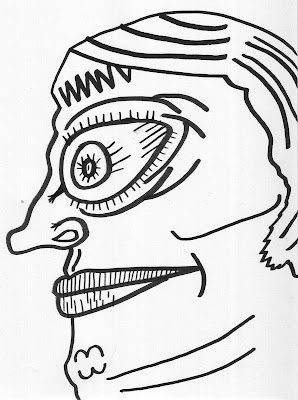When one frequents baby name blogs and discussion boards, as I do, one begins to be able to anticipate the jokes. A classic: all that the parents of infant Holdens demonstrate is that they never read a novel after high school (the phonies!). Another joke I see quite a bit comes in the form of observing the relative popularity of Camden (which ranked #160 in 2011, with 2,391 baby boys by that name) and Trenton (which got as high as #178 in 2000 and again in 2007; 1,811 births in 2011). That is the whole joke, that observation, though I suppose it should be accompanied by an eye roll or a finger wag for maximum effect. Let me put this another way: Trenton, by being around the 178th most popular male name in America, is about as popular as Gary was two decades ago.
Of course, no one would accuse a parent of a Gary of naming their sweet, darling baby after Gary, Indiana. (Not even
Gary Indiana’s parents!)
Trenton and Camden, on the other hand, immediately—well, for those who are rolling theirs eyes and wagging their figures—summon up
two of the poorest cities in New Jersey. This is not the reason for their popularity, of course. We can attribute that to the fact that they both end in the letter
n (think Mason, Jackson, Landon) and can double as surnames (think Mason, Jackson, Landon). Trenton has the added bonus of yielding the previously established name Trent as a nickname, as Jackson yields Jack or Lillian Lily, while Camden conjures up visions of
Cameron and
Caden.
For those who remain unconvinced by the appeal of these names, I offer little assurance. Take comfort, I suppose, in your refined taste, your superior knowledge.
You are a good person.
And here is a new joke for you. It might require a little practice, but I am sure you will soon be a pro. “Trenton?
Camden?” you start off with. “Why
those cities? If you’re going to name your little one after some Garden State hellhole, why not choose an especially wealthy hellhole? Names should be aspirational, like Bentley and Tiffany, or like Toms River, like Rumson, like Teterboro, like Ho-Ho-Kus. What is wrong with a toddling Sea Girt, a puckish Tewksbury, a scrumptious Tenafly, a swaddled Cranbury, a wee Wyckoff, a colic Mahwah?”
Your interlocutor, if he or she is hip to your jive, can then chime in: “Aspirational, schmaspirational. There is nothing wrong with the culture of our country’s lumpenproletariat. They must learn to love themselves as much as they love the Insane Clown Posse. So, on Camden, on Trenton, I say! May your best buds be Perth Amboy and Egg Harbor and Tavistock! May the girl you knock up between paint huffs be Orange! May your first-born be . . . Elizabeth!”

















































